
Photo: Abeer Hoque
Hana Shams Ahmed
[Himal, June 2010]
At Partition, the Chittagong Hill Tracts, with an overwhelmingly non-Muslim indigenous population, were included within Muslim-majority East Pakistan. Yet the Paharis (indigenous hill peoples) were never really integrated into the Bengali nationalist movement for independence, which culminated in 1971. Discriminatory attitudes of the majority Bengali and ‘spoiler’ tactics by the central government prevented the Paharis from playing a substantive role in the movement. Following the formation of Bangladesh, the Paharis asked for constitutional recognition and regional autonomy, but were turned down. Marginalised throughout the period of British and Pakistani rule, the Paharis finally took up arms, and Manabendra Narayan Larma, their leader, a young lawyer and legislator, formed the Parbatta Chattagram Jana Samhati Samiti (PCJSS), the political wing of the insurgent Shanti Bahini guerrillas, to fight for the political rights of the Pahari people.
In 1997, the Bangladesh government signed a ‘peace’ accord with the PCJSS. But the United People’s Democratic Front (UPDF), a breakaway group of the PCJSS, and the Bangladesh Nationalist Party (BNP), then (and now) the opposition in Parliament, fiercely opposed the accord. The BNP protested that it allowed the Paharis a separate administrative system and discriminated against the Bengalis, while the UPDF opposed it on grounds that the agreement failed to address PCJSS’s most important demand – full autonomy. Others criticised the accord for not addressing the hundreds of thousands of Bengali settlers who were moved into the Hill Tracts from 1979 through the 1980s as a counter-insurgency measure. Nor did the document give constitutional recognition to the indigenous peoples.
For most Paharis, the 1997 agreement did give them relief from conflicts between their own political groups, and with the Bengali settlers over land and political office. Yet 13 years after its signing, much of the accord remains unimplemented. In February, Bengali settlers, allegedly with support from the army, set fire to more than 400 Pahari homes in 11 villages across Baghaihat of Rangamati district (see Himal April 2010, ‘Manush Bachao’). As yet, there has been no independent investigation into these incidents. In April, the CHT Regional Council, chaired by Jyotirindro Bodhipriyo Larma, the leader of the mainstream PCJSS, was declared unconstitutional by a High Court (though the judgement has since been stayed). If the Regional Council ceases to exist, Paharis will essentially lose all significant influence over the CHT administration.
Raja Devasish Roy is the chief of the Chakma Administrative Circle, an official body, and the traditional raja of the ethnic Chakma community, which lives mostly in the CHT as well as India and Burma. He is also an advocate at the Supreme Court of Bangladesh, and was one of the lawyers fighting the case for the Regional Council. He recently spoke to Hana Shams Ahmed about the concerns and problems that continue to face the Adivasis of the CHT. Read the rest of this entry »
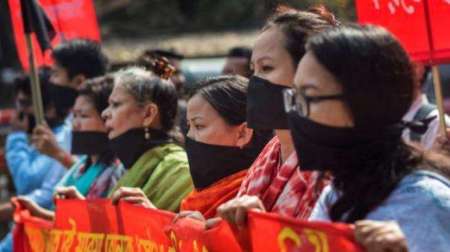



 Posted by hanashams
Posted by hanashams 
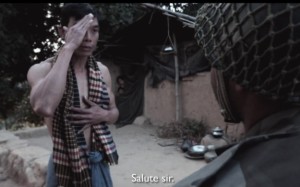
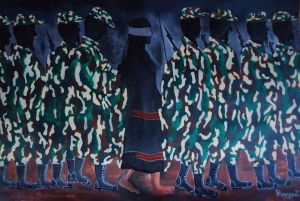
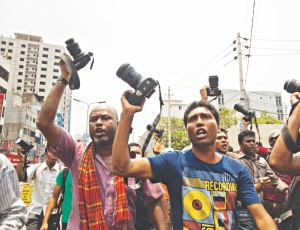
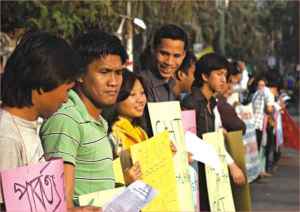







You must be logged in to post a comment.